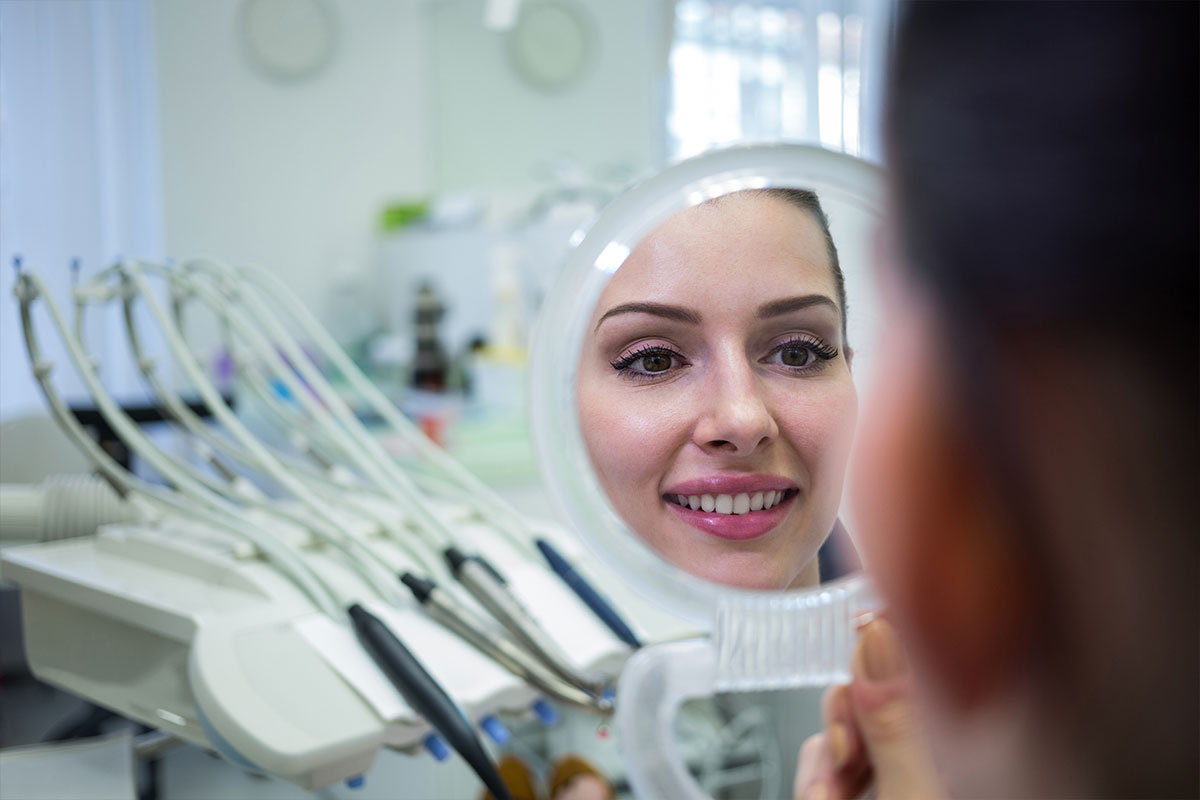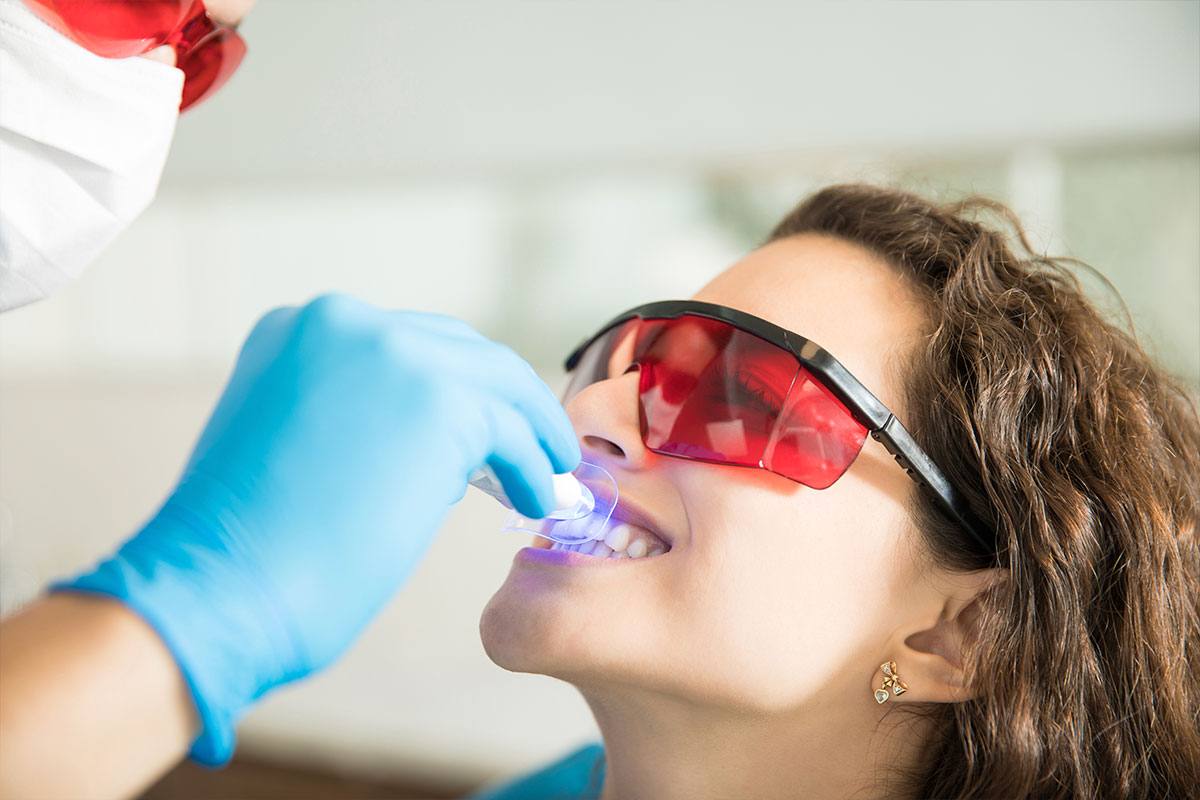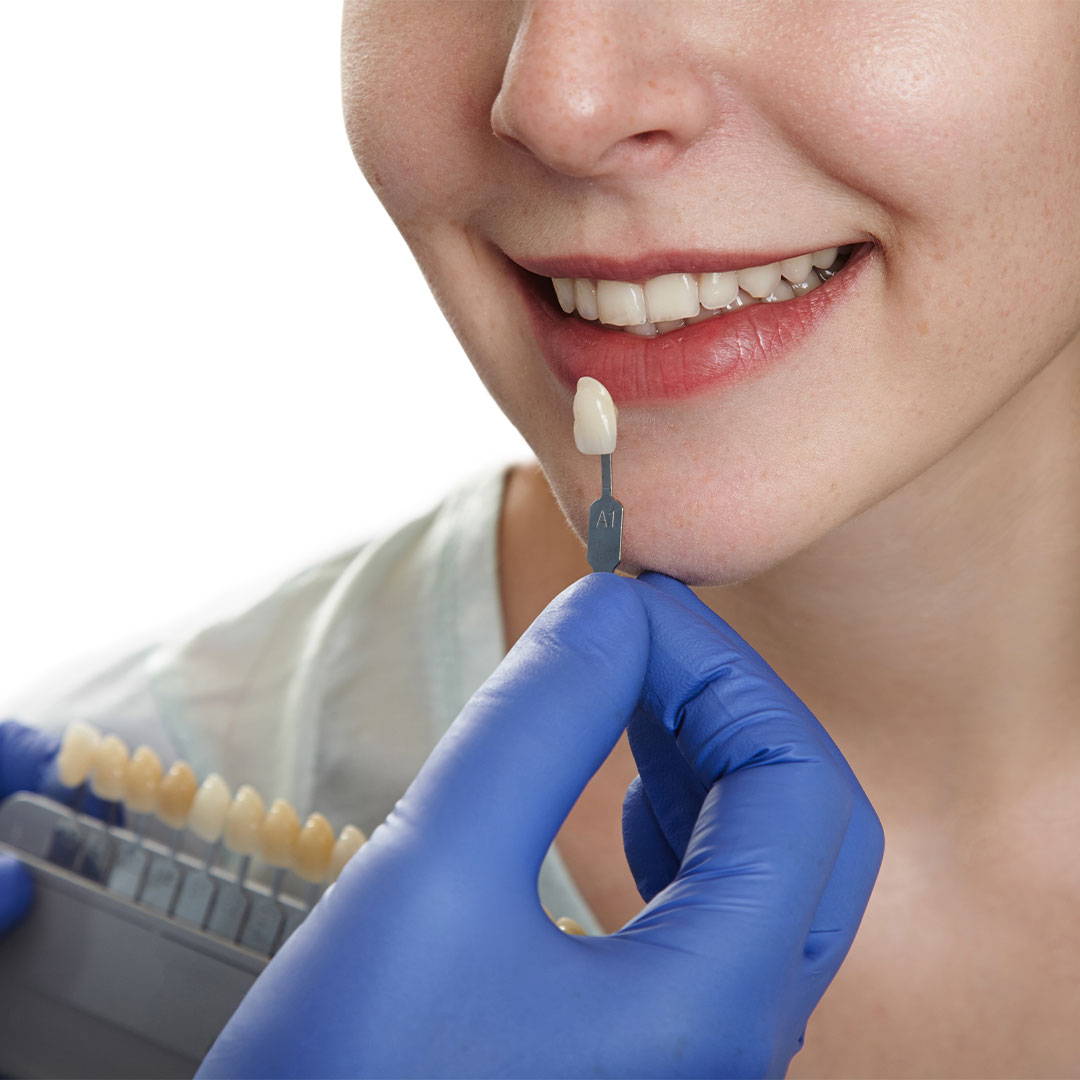What is teeth whitening?
Teeth whitening is a cosmetic dental procedure that aims to lighten and brighten discolored or stained teeth. It involves the use of various chemical agents to remove or reduce the appearance of stains and discoloration on the teeth, resulting in a brighter, more youthful-looking smile.
There are two main types of teeth whitening procedures: in-office whitening and at-home whitening.
In-office whitening is performed by a dentist or dental hygienist and typically involves applying a strong whitening gel to the teeth, which is then activated by a special light or laser. This type of whitening usually takes about an hour and can result in a significant improvement in the shade of the teeth.
At-home whitening typically involves the use of custom-made trays that are filled with a whitening gel and worn for a specified period of time each day. This type of whitening usually takes several weeks to achieve the desired results.
Teeth whitening is generally safe and effective, but it may not be suitable for everyone. People with gum disease, tooth decay, or other dental problems may not be good candidates for teeth whitening, and some people may experience tooth sensitivity or other side effects. It’s important to consult with a dentist before undergoing any teeth whitening procedure to ensure that it is safe and appropriate for your dental health.

Benefits of teeth whitening?
Teeth whitening is a popular cosmetic dental procedure that offers a variety of benefits, including:
Improved Appearance
One of the primary benefits of teeth whitening is that it can significantly improve the appearance of your smile. Brighter, whiter teeth can make you look younger, more attractive, and more confident.
Boosted Self-Confidence
Many people feel self-conscious about the appearance of their teeth, especially if they are discolored or stained. Teeth whitening can help boost self-confidence by giving you a more attractive smile that you can be proud of.
Affordable
Teeth whitening is a relatively affordable cosmetic dental procedure compared to other options, such as veneers or orthodontic treatments.
Quick Results
Teeth whitening can produce dramatic results in a relatively short amount of time. In-office whitening can usually be completed in a single visit, while at-home whitening can take a few weeks to achieve the desired results.
Safe and Effective
Teeth whitening is generally considered a safe and effective cosmetic dental procedure when performed by a qualified dentist or dental hygienist.
Customizable
Teeth whitening can be customized to meet your individual needs and preferences. Your dentist can recommend a whitening treatment that is best suited to your dental health, the extent of staining or discoloration, and your desired outcome.

How soon can I get the result of the whitening process?
The length of time it takes to see results from teeth whitening can vary depending on the method you use and the extent of staining or discoloration on your teeth.
In-office whitening can produce dramatic results in just one visit, typically taking about an hour to complete. You should be able to see a noticeable difference in the shade of your teeth immediately after the procedure.
At-home whitening can take longer to produce results, typically taking several weeks to achieve the desired outcome. However, you may start to see some improvement in the shade of your teeth after just a few days of using the whitening product.
It’s important to note that the results of teeth whitening are not permanent and can be affected by factors such as diet, lifestyle habits, and natural aging. You may need to undergo touch-up treatments periodically to maintain the desired shade of your teeth.
A few things to consider after teeth whitening
After teeth whitening, there are a few things you should pay attention to in order to ensure that you get the best possible results and maintain the brightness of your teeth:
Avoid Staining Foods and Drinks
For the first 24-48 hours after whitening, it’s best to avoid foods and drinks that can stain your teeth, such as coffee, tea, red wine, and dark-colored berries. After this initial period, you should still try to minimize your consumption of these foods and drinks in order to maintain the brightness of your teeth.
Brush and Floss Regularly
Good oral hygiene is important for maintaining the health and appearance of your teeth. Brush your teeth twice a day and floss once a day to remove plaque and prevent staining.
Use a Straw
When drinking beverages that can stain your teeth, such as coffee or tea, use a straw to minimize contact with your teeth.
Avoid Smoking or Chewing Tobacco
Tobacco products can cause significant staining and discoloration of your teeth. Quitting smoking or chewing tobacco can help maintain the brightness of your teeth and improve your overall health.
Consider Touch-Up Treatments
The results of teeth whitening are not permanent and can fade over time. Consider touch-up treatments every 6-12 months to maintain the brightness of your teeth.

Who can do teeth whitening?
It’s also important to note that not everyone is a good candidate for teeth whitening. People with certain types of dental restorations, such as crowns or veneers, may not be able to undergo teeth whitening as it can cause uneven coloration between natural teeth and restorations. People with gum disease, tooth decay, or other dental issues may also not be candidates for teeth whitening until their dental health is improved. A dentist can evaluate your dental health and recommend the most appropriate teeth whitening treatment for you.

